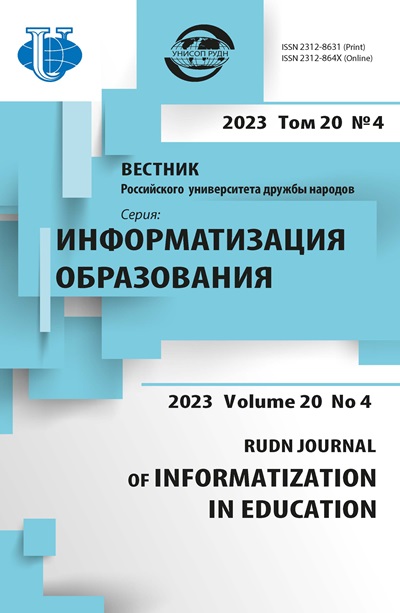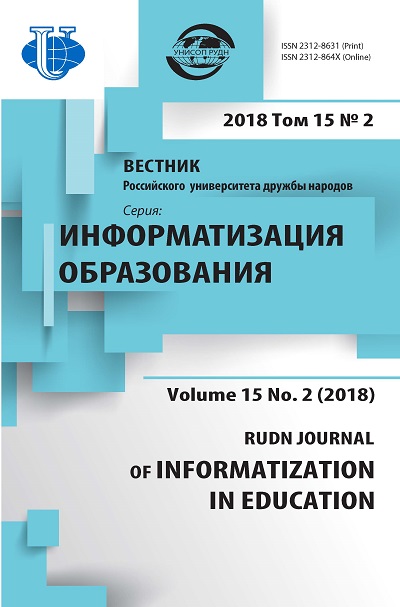LINGUISTIC PECULIARITIES OF SOFTWARE LOCALIZATION
- Authors: Nardyuzhev V.I.1, Nardyuzhev I.V.2, Marfina V.E.1, Kurinin I.N.1
-
Affiliations:
- Рeoples’ Friendship University of Russia (RUDN University)
- Software development department, JSC “The Seventh Continent”
- Issue: Vol 15, No 2 (2018)
- Pages: 197-205
- Section: DIDUCTIC ASPECTS OF EDUCATION INFORMATIZATION
- URL: https://journals.rudn.ru/informatization-education/article/view/19151
- DOI: https://doi.org/10.22363/2312-8631-2018-15-2-197-205
Cite item
Full Text
Abstract
The article is devoted to the analysis of linguistic aspects of software localization. The relevance of the presented research is determined by the fact that localization, being situated at the junction of rapidly developing computer technologies and modern translation technologies, has become an important factor in the success of the software development business in different languages all over the world. At the same moment, localization, as an important element of the information culture of a student of the linguistics, focused on translation activity, is just beginning to be introduced into their educational process. The article demonstrates the results of the study. The peculiarities of a localization translation are revealed. The methods of work of a group of translators with a web of the original language and several target languages are shown. The language differences in the language pairs (English-Russian and EnglishFrench) in texts related to the software have been clarified. The directions of usage of the obtained results in the educational process (during lessons of technical translation, in the development of a computer practical work, in the implementation of training projects for localization) are proposed.
Keywords
About the authors
Viktor Ivanovich Nardyuzhev
Рeoples’ Friendship University of Russia (RUDN University)
Author for correspondence.
Email: vin111@mail.ru
candidate of engineering sciences, associate professor of the department “Computer technologies” of the philological faculty of the Peoples’ Friendship University of Russia
Miklukho-Maklaya str., 6, Moscow, 117198, Russian FederationIvan Viktorovich Nardyuzhev
Software development department, JSC “The Seventh Continent”
Email: inard@rambler.ru
candidate of engineering sciences, programmer of the software development department of JSC “The Seventh Continent”.
Building, 21, MKAD 47, v. Govorovo, Moscow, Russia, 142784Victoria Evgenievna Marfina
Рeoples’ Friendship University of Russia (RUDN University)
Email: vika434221@gmail.com
student of the master course at the department of comparative educational policy of the Peoples’ Friendship University of Russia
Miklukho-Maklaya str., 6, Moscow, 117198, Russian FederationIvan Nikolayevich Kurinin
Рeoples’ Friendship University of Russia (RUDN University)
Email: kurinin_in@pfur.ru
candidate of economic sciences, associate professor, head of the department “Computer technologies” of the philological faculty of the Peoples’ Friendship University of Russia
Miklukho-Maklaya str., 6, Moscow, 117198, Russian FederationReferences
- Yazikovoi portal Microsoft [Microsoft language portal]. URL: https://www.microsoft.com/ Language/en-US/Default.aspx
- Craciunescu O. Machine Translation and Computer-Assisted Translation; a New Way of Translating?” // Translation Journal. 2004. Vol. 8. No. 3. URL: www3.uji.es/~aferna/EA0921/7a. pdf
- Pym A. The Moving Text. Localization, Translation, and Distribution. Amsterdam: Benjamins, 2004. 222 p.
- Brooks D. What Price Globalization? Managing Costs at Microsoft. Amsterdam: Benjamins, 2000. 239 p.
- Cronin M. Translation and Globalization. New York: Routledge, 2003. 208 p.
- Bassnett S. When is a Translation Not a Translation? // Constructing Cultures. Essays on Literary Translation. Clevedon: Multilingual Matters, 1998. Pp. 25—40.
- O’Donnell J. Avatars of the Word. From Papyrus to Cyberspace. London: Harvard University Press, 1998. 228 p.
















